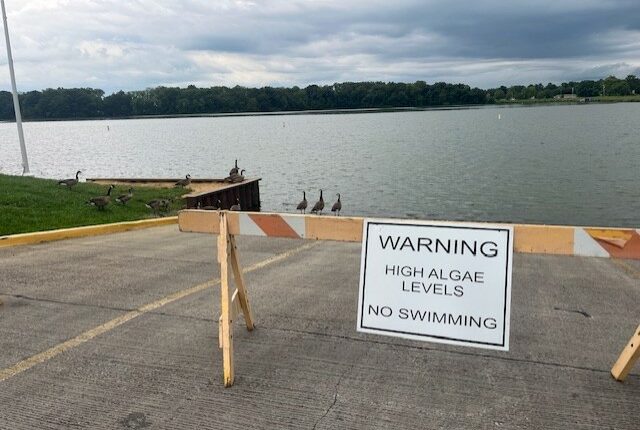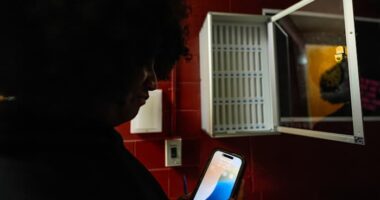Share this @internewscast.com

MATTOON, Ill. (WCIA) — Mattoon has been without drinking water for almost a week. Thursday marked five, nearly six, entire days without this essential resource.
Although the city delivered promising news that the toxic algae bloom levels had decreased since the reissued “do not drink” order, further testing will be necessary before lifting the order.
Eliana Brown, a water quality and stormwater specialist with Illinois Extension and Illinois-Indiana Sea Grant, mentioned that from the first “do not drink” order to the second, the warm weather and sunshine might have significantly contributed to the algae’s growth.
“Blue-green algae responds quickly to weather changes, and it seems like there have been a number of weather changes,” Brown said.
Brown said the hot weather and sunshine are two of the three things toxic algal blooms need to grow. The third is nutrients. While the weather is largely out of people’s control, Brown said everyone can help out by reducing nutrient levels.
“All of us can play a part in this,” Brown said. “There are conservation practices like cover crops, conservation tillage and buffer strips that are proven to reduce nutrients that fuel these kinds of algal blooms. In town, we can build rain gardens [and] we can use natural lawn care practices.”
The water issues have created an uncertain time for just about everyone in Mattoon, including first responders. Firefighters are still battling flames, while police are still getting calls for service.
Mattoon Fire Chief Jeff Hilligoss said it’s been a team effort to not only get the algae levels down, but to learn how to keep them down going forward.
“During our water crisis, all city departments have come together to diligently work to find a solution to the water problem, not only currently, but what measures that can be taken to help ensure that this problem does not happen again with long term solutions,” Hilligoss said in a statement to WCIA. “Every city employee has had some kind of hand in working through these problems, and I am extremely proud to be a small part of this great community that pulls together in a time of need.”
Beyond law enforcement, there’s no shortage of community businesses and volunteers willing to help out.
Rural King in Mattoon said they’ve donated several semi truck loads of cases of water to the community. Those trucks have been parked at Williams Elementary School and Lytle Park for days, as people drive through and get their allotted amount.
“We work hard to be a dependable supplier for our community,” store manager Mark Kirby said. “They’ve supported us over the years and we’re just glad to be able to support them in a time of need.”
Aside from Lytle Park and the elementary school, another site started benefiting from Rural King’s generosity on Thursday.
In the back of the YMCA parking lot, boxes and boxes of paper goods sat out alongside a tanker of water. All the supplies are reserved for small businesses like restaurants, nursing homes and daycares.
Broadway District Founder Angela Hampton, who organized the effort, said it’s a hard time for mom and pop shops who may not have the finances to splurge on single-use dishes. She hopes the resources allow those spots to stay open and continue feeding into the city’s economy.
“Every small business matters, and if it means that paper plates help them stay open for a day so that they can feed our community, then again, the positive ripple effects of that can make a real impact,” Hampton said.
Kirby said Rural King will continue supplying resources until the order is lifted, which is still an uncertainty.
The last test results from the IEPA on July 17 said the water had an algal bloom toxin level of 0.058 parts per billion. That’s down from the 0.215 on Wednesday, and the 0.38 that prompted the second order on Tuesday.
While that’s below the federal health advisory recommendation of 0.3, IEPA Public Information Officer Kim Biggs said the IEPA has recommended the advisory remain in place until two test results taken at least 24 hours apart show microcystin levels below 0.2 ppb (the detection limit).
The city’s post on Facebook said the next water test is scheduled for Friday.








